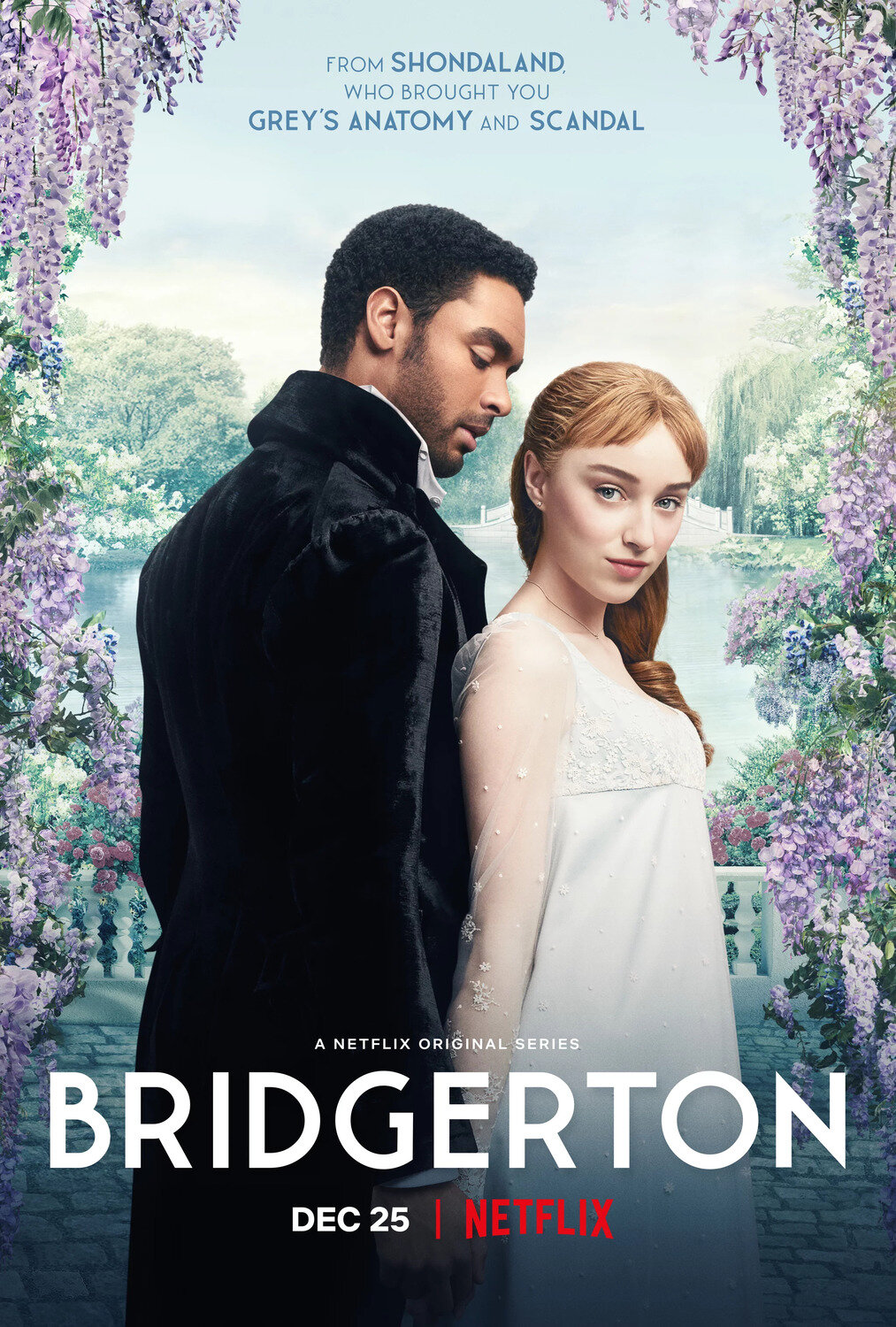Poetry and the Market
[Warning: this is a long read!] Last week I listened to a talk on How to Market Your Book — actually, an interview by the London Writers’ Salon with Ricardo Fayet, co-founder of the web platform Reedsy — a man whose whole life is about how to make books sell in big enough quantities to become visible from space — that is, enough for the writer to make a living from — and on this he gave a lot of very good advice.
As we know, a lot of what ‘marketing’ is is just common sense. Be genuine. Build connections; it’s like building any business. We’re writers, but this is the business side of what we do, and business is about transactions. It can’t be all one way.
The bad news is that it’s a lot of work. Of course it is: what’s simple is rarely easy. And you’ll have to learn a lot. And the good news is that by working at it you’ll learn a lot about what your project actually is, and you’ll make progress towards your goal.
Yes, you do need to learn about marketing, and not just that but also how the book trade works in general. (I know writers who don’t have a clue and it doesn’t make their lives easier.) No, you can’t just hire someone to do it and ignore the whole thing. No, you won’t get your self-published books into bookshops, unless you have a friendly local. Yes, social media is key, but you can concentrate on what you’re good at and enjoy. No, don’t fake it, because it’ll look fake and people can tell. Yes, you need to work out what you might be better at, maybe learn some skills, and do that. And yes! Marketing your work is going to go on forever.
In practice it comes down to brass tacks. Tasks, activities, things to do. The best thing Ricardo said, I think, was that ‘marketing’ doesn’t mean pushing your book at everybody, or ramming it down the throats of brand-new Facebook friends. It means working out who’s likely to be interested in it, and where they’re likely to be looking for books, and quietly putting news of your book there for them to find: a blurb, a link, a picture, an interview, a little review, a sample scene.
So you have to do the research, and figure out a strategy for spreading the news. If you think of it less as selling and more as audience-building it might feel a little more comfortable. (That’s me talking, there.)
When asked about which writers he thinks are really doing their internet marketing right — who can we looking at for inspiration? — Ricardo said everyone needs to find their own, because each genre works differently; this is true. He cited someone who has a very slick website offering, with three free novel offers, a newsletter, and various levels of response emails, ‘everything very well thought through and automated’. In other words, a professional writer with money and a web guy. So maybe we can’t all emulate that. And there’s not much point, if all you’re selling is poetry. It will help you to spend a weekend trawling through the websites of all the writers you can think of, especially the ones at about your publication level, and compare them. Take notes. Be realistic about your web skills (I recommend Squarespace). (And to quote Mrs Doyle, some of us LIKE the misery!)
I’ll get to the poetry, but just bear with me, because first we’re going to take a little tour round the city and then come out in our own neighbourhood.
He talked a lot about writing to the market. He says there are essentially two kinds of writers those who write a story [sic; everything is story] that’s burning within them, that they feel they have to tell, and those who write to the market. The second group are those who love and really understand a genre for itself — how it works, how its inherent structure works — and can write to that. All the writers I know who ‘write to the market’ are either selling commercial journalism or are lucky enough that some form of immediately recognisable genre writing coincides with the thing that’s burning inside them, that they have to write.
My old friend Jane Holland, for example. We met a hundred years ago when we were both writing poetry, both published by Salt. She also wrote hardcore romance novels under a pen name. She eventually stopped publishing (maybe even writing) poetry, and focused instead on her fiction-writing, and has now written I have no idea how many novels, under Lord knows how many pen names, sometimes under contract with publishers and sometimes on her own steam (a very good idea, according to Ricardo). She has a radar for her genre so sharp you could slash a historically accurate bodice with it with your hands tied together. And she’s prolific! She’s written a book almost as soon as thought of it. She wrote a novel in the six weeks after giving birth to twins.
Every so often Jane says to me, ‘Just write something commercial, Katy! Then you can do your poetry’. I WISH. I tried once. I know what my gifts are and that ain’t them.
During that year of Mantel-mania after Wolf Hall had come out, Jane sent me a copy of her newest novel. It was a black paperback dressed only in a pearl necklace, titled Wolf Bride. A banner read, ‘Lust in the Tudor Courts’. Later editions gained an even pithier red badge: ‘Fifty Shades of Tudor Sex, The Sunday Times’.
Well, Jane’s got her latest book hitting the shelves right now, including those of two supermarkets. (That’s a big coup, which Ricardo also mentioned last night.) Wartime with the Cornish Girls, by Betty Walker, is a story of how ‘hope and friendship will see them through’, from Avon Books, a commercial fiction imprint of HarperCollins. So there ya go. Jane is, as the book marketing guru wants us all to be able to, earning an actual living off her pen. I’d say she’s fearless, not scared of research and also not ruled by it, she believes in what she’s writing, she has boundless energy and isn’t much given to self-doubt or wafting vapours about ‘attention-seeking’. In short, she’s having a blast writing what amuses her for money, and she has a hard head for business.
This brings us to the second kind of writer Ricardo mentioned: those of us who write what we must, because we must. As he put it, we have a story inside us that we’re burning to get out there. He could only speak in generalities, because there are hundreds if not thousands of specific kinds of books — for instance, he merely divided them into ‘fiction’ and ‘non-fiction’, and I’d argue that the marketing channels even for those are more porous than he made out. But anyway.
He gave an example of someone who follows their gut and writes a book that crashes maybe three genres together: I think he said history, sci-fi and romance. He says the market for this book will be much harder to identify and reach, and thus it’ll be a much harder sell, and the writer will have to struggle to find the six people who really want it (he didn’t say six, that’s me). But the two first things I thought of were a book called Mrs Darcy and the Aliens, also published by my publishers, Salt (and also, if memory serves, edited by Jane’s husband Steve), and — ahem — Bridgerton. We should all be so hard to sell.
As an aside, or not, someone this morning mentioned fan fiction as ‘a way to learn to write without having the time or money to go and do a degree’. You absolutely don’t need any kind of a degree to know how to write, but it does strikes me that Mrs Darcy, and Wolf Bride, and Bridgerton, and indeed the execrable but lucrative Fifty Shades, all have at least a part of their origins there. It may just be a truth universally acknowledged that the way to succeed in business is to have a bit of playfulness, just do what people like without bothering too much about purity, and not to overthink things of feel self-conscious.
And with that, we’ve arrived!
Hurrah! Now we’re at the poetry! No more pictures from here on in. I’m putting you to work. Get out of that dressing gown.
Ah, home at last — the familiar garret! Poetry, the page kind anyway, is traditionally the ne plus ultra of nerd-writing, writing what’s in you, writing in your bedroom at 15 (and 35), secretly because everyone will think it’s stupid — maybe it’s even all that’s in you — and you’re not doing it for money because there bloody well isn’t any.
London Writers’ Salon asked Ricardo if he had any advice about marketing poetry, and he went completely blank and said straight up — which I admire — that he knows nothing about it. Why would he? It sells in quantities undetectable by his instruments. Even a well-known poet in the UK might sell only 200-300 copies of a book everyone’s talking about, unless they get picked up by the Poetry Book Society, or shortlisted for the TS Eliot or Forward Prize. So you have to think, what is your goal? Or to put it another way:
WHAT ON EARTH DO YOU THINK YOU’RE DOING??
First, I should say I know some very fine, serious poets who rarely if ever send their work out for publication. There is a long tradition of this in the English canon: had their friends followed their advice, we wouldn’t have any poetry by Gerard Manley Hopkins, William Herbert, Emily Dickinson, or many others.
[pause]
There! Now you’ve given it the half-a-second’s thought it takes to realise that you’re doing it because you love it. You’re doing it for the art form, because you have something burning away in you, some force bigger than you. And you want people to read your work, for whatever complex of reasons. Poetry is your pond, so all you can do is get in it and swim.
So everything i say from here on is going to be aimed at getting you readers.
BEFORE YOU HAVE A BOOK
Not only does marketing your work go on for your whole life, it begins the first time you put a poem out there. When Ricardo says you have to know your genre, the number one thing you need to know about poetry is that it’s about people. We don’t get the nameless, faceless, stratospheric thing. This is true of all marketing anyway, but it’s doubly true of poetry:
It’s about people.
Poetry is people at slams, people on Zoom, people sometimes even in pubs again — people in workshops, people in bookshops, people in writing groups. You can’t just sit in your garret; you need to go find them. You need fellow poets to admire and follow and read and listen to, and hang out with, and you also need poets to do those things for and with you. It’s two way. They won’t necessarily always be the same people, or even the same people fulfilling each function. You can’t just ask your friends to buy your book; you need poetry-reading friends and their friends, and their friends…
Because poetry is inherently a social genre, it’s pretty easy to do this. Poets tend to congregate together with the other people who understand their strange impulse, and they also tend to want a good time, so friends are easy to make. And not only are you more likely to sell a book once you have it if you have mentors, pals, colleagues, acquaintances, peers, collaborators, and co-conspirators — it may even be easier to get the book published, because those people are the beginnings of your audience.
So here are some of the nuts and bolts (this is strictly UK-centric, as that’s where I am).
Start sending poems out to magazines as soon as you feel ready (& I do mean really ready; neither early rejection slips nor premature exposure are going to do you much good in the long run). The Poetry Library has a lot of information on its website, including about poetry publishers and magazines, and Robin Houghton’s email newsletter keeps subscribers up to date with reading windows and other deadlines, and also provides links to their sites. I tell all my students to subscribe to it. Indispensible!
You’re marketing your work the first time you send it out. Write a nice cover letter to the editor, whom you address by name. Say something nice. Tell them a little (just a little) about you so they know you’re friendly and would be nice to work with. Send the poems in the format they ask for.
Park your ego at the door. Remember it isn’t about you: it’s about the POEMS. You wouldn’t believe the number of people I’ve heard say that they think ‘the poems should speak for themselves’; they usually say they ‘don’t want it to be all about them’ (even though it already isn’t), and they’re so horrified about ‘putting themselves out there’ and being ‘attention-seeking’ that they don’t even write a cover letter!
This seems far more attention-seeking to me. Just imagine being that poor (probably unpaid) editor, slogging tiredly through their poetry inbox after a day at work (maybe even still at the same desk, after working from home), and you get some poems from someone who can’t even be arsed to write you a note! I’d just say no. (And by the same token, if the editor says no, don’t write an abusive reply. They’ll never publish you now.)Use social media — though, as Ricardo says, not in a fake way. Use it to make poetry friends, mentors, readers, co-conspirators, buyers…
Be generous — share other people’s work, enthuse about things you’ve read, write about books, make jokes, have ideas in public.
Being wide-ranging is a form of generosity, too. Fuck the poetry wars! Poetry is a big country with room for lots of towns, and the more towns you have friends in, the better it’ll be for everybody. ‘Experimental’, ‘formal’, ‘innovative’: these categories are breaking down. ‘Let us have commerce together’, as Ezra Pound wrote in his poem to Walt Whitman.
If you enjoy it and feel you have things to say, write a blog. Or a Substack. Or just a great Twitter feed. Write about other people and their work; create allies and partnerships. Tell stories. Be something people want to be a part of, and give them a part to be.
If you enjoy it and have a talent for it, and feel widely-enough read to be able to contextualise what you read, offer to write book reviews in poetry magazines.
Do joint projects — a reading or even a reading series, a book, a podcast, reciprocal blog posts, music, a funny video — and share (I mean combine, I mean expand) your audiences.
And for God’s sake, get your website in order! Properly! And keep it updated.
BEING PUBLISHED
First, getting it published. The usual route is poems in magazines —> pamphlet —> first collection. This takes time.
Publishing in magazines is an essential part of the process.
It teaches you how to handle rejection.
It teaches you how to edit your work for publication; there’s nothing quite like seeing something you thought was perfect out on its own in public, and wanting to change every line.
It’s good to get used to an editor.
It builds your profile and gives you something to talk about in your cover letters.
Once you’ve established a magazine track record, and learned whatever that has to teach you about what’s working or isn’t working in your poems, you can think about a pamphlet. A pamphlet — about twenty poems or so — teaches you about assembling a collection in miniature. It gives you something to sell copies of at readings before you’re quite ready for a book. It creates interest in your eventual collection. And it gives you a chance to hone your marketing skills!
People ask: Is it a good idea to self-publish a poetry collection? Excellent, if you just want something to give to friends. If you do it on a more serious basis, you are literally turning yourself into a publisher as well as a writer. You’re going to be in charge of all editing, typesetting, cover design, paper choices, printing choices, budgets, marketing, and physically selling, including packing and postage. If that’s your project, go ahead!
If you think you want to self-publish, I think it’s a good idea to take stock carefully first. What are you trying to do? What kind of profile do you want to develop? Or do you not care? The facts are that self-publishing makes your book or pamphlet ineligible to be entered for for poetry’s few awards and prizes, or grants for work in progress. It will almost certainly never appear in a bookshop. You can still sell a lot of copies, but without some of the boosts poets rely on: you won’t be eligible to be chosen as a the Poetry Book Society Choice or Recommendation, for example. As a self-published poet you’re not eligible for the Royal Literary Fund, and you’re unlikely to sell enough copies in a year (300 hard copy, 500 e-books) to qualify for membership of the writers’ union, the Society of Authors, should you want to join (and they hand out awards and grants, too). It will be very hard to get reviews of your work published.
And don’t self-publish if you’re diffident about putting yourself out there! The late Michael Horovitz started his New Departures press and anthology in 1959, while still at university, and at 85 (that is, just before the pandemic struck) he was still out gigging, never going anywhere without his wheelie trolley of books which he had no compunction about asking people to buy.
By the same token, an eminent poet I know, published with a major press, told me that he had once run into an elderly, also eminent poet on a railway platform, and asked him where he was going. ‘To do a reading’, the elderly poet replied. He had with him a big heavy bag of books. My friend said, ‘If he was still having to carry his books around! I saw my future and my heart sank’. For poets, this is what Ricardo means when he says the marketing never ends. But this poet wasn’t having to run the production of the books, Amazon, all the other retailers, and the statutory stuff, too.
MARKETING YOUR BOOK
So the following information mainly applies to books published by a proper press, with ISBN numbers. This is all the same kind of stuff that someone like the novelist in the supermarket has to do — the difference is that we have to do more of it for ourselves, and the stakes are a lot lower. We’re going to feel almost every sale.
Most poetry books are sold at readings. By far. And the reading where you’re most likely to sell the most copies is your launch. Publishers mostly don’t make money available for launches (though a few indie presses do run joint launch events), so you’ll have to organise this yourself, from the venue to the guest list to the key decision: whether or not to lay on a tab behind the bar, or supply drinks (depending on the venue) or let people pay for their own. For this reason many poets have a series of launches in different cities where they have an audience. You could hold a Zoom launch, too. Throw yourself into the launches! They’re fun, they’re your parties, and they’re your very best shot for bulk sales.
Readings should be forthcoming due to all that networking you’ve been doing. Hold a joint reading with a friend. Make sure the festivals know about you; you may have to send them a copy. You could always run your own reading series, and invite other poets to read. I did this once, every 6-8 weeks for two years in Stoke Newington, and it was both hard work and a lot of fun, and I made a lot of connections. I only read myself two or three times in there, but that was fine. I think reading regularly at your own reading series is a very bad look, anyway — a bit preening — and the people who do it also tend to read for too long, which tells you something.
To try for reviews, first make sure any magazine you review for, or have been published in, or just really like, gets a review copy of your book. Some publishers have teams to take care of all this. With others, you will have to do a lot of it. Yes, it costs money, because you’ll have to buy your books (at discount of course) to send. (The lesson here is that, in order to make your poetry succeed, you’ll kind of have to give up the idea of making any money out of your book. Don’t worry, it wasn’t going to be much anyway.) Try the same with friends and colleagues who have blogs. You get the drill: it’s about people.
You will have to research all the prizes and awards you may be eligible for, and either submit your book for them or else chivvy your publisher. You may find some they didn’t even know about.
Blog posts, blog interviews, reciprocal blog posts, Substack, Medium, UnHerd… what’s your online prose platform of choice? Write about writing your book. Write about other books that have just come out from your publisher. Write about the subjects of your book. Write about what you had for breakfast, in a way that will make people want to read your book. Write about poetry in general, and your view of it, and your view of the world. Do this regularly from before the book comes out till long after.
Twitter, Instagram. Tik Toks of you reading your poems out, a YouTube mini-reading, Facebook live, podcasts, photos of and links to reviews, links to your blog posts… whichever social media is your social media, use it in a way that isn’t just spamming people with pictures of your book cover. There’s a whole big discussion to have about social media, but I think if you stick to manners, authenticity and creativity you’ll be great.
Don’t change your name to ‘Josie Bloggs Author’ (or ‘Poet’). Don’t ask people to like your page right after friending you. Don’t complain about people not buying, or not liking your page.
Goodreads: make an account, make sure your book is on it.
See if your local bookshop will stock it; this will probably be on sale or return, unless you’re the big new sensation from Faber.
Give copies away. To somebody who can’t afford one. To the winner of a competition you set up on social media. To people who might help get some more coverage.
I don’t know. What am I leaving out? Write a thriller?
Ricardo Fayet’s book, How to Market a Book: Over-perform in a Crowded Market is available for free as a Kindle book. I’ve downloaded it. Watch this space in case I learn something new, or else get a copy yourself.And don’t forget that the London Writers’ Salon runs free Zoom-based writers’ hours, if you want some company sometimes. It’s like working in the library at your kitchen table.
N.b., that picture above is Chatterton's Holiday Afternoon, engraved by William Ridgway, after W.B. Morris, 1875






